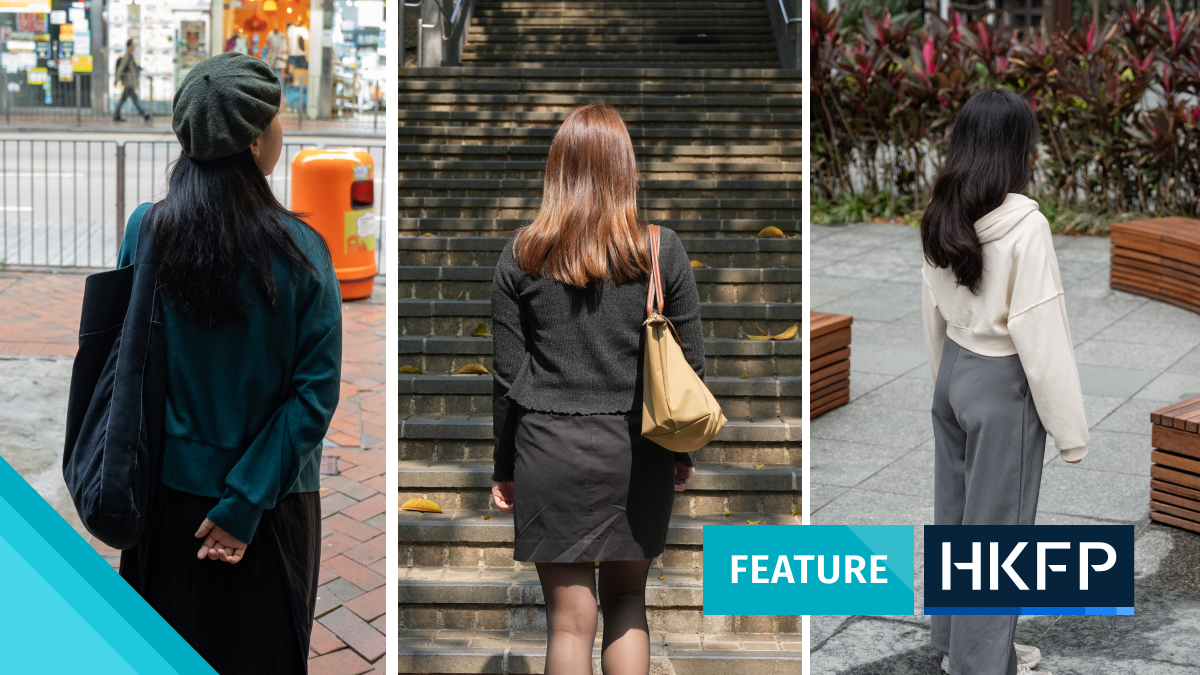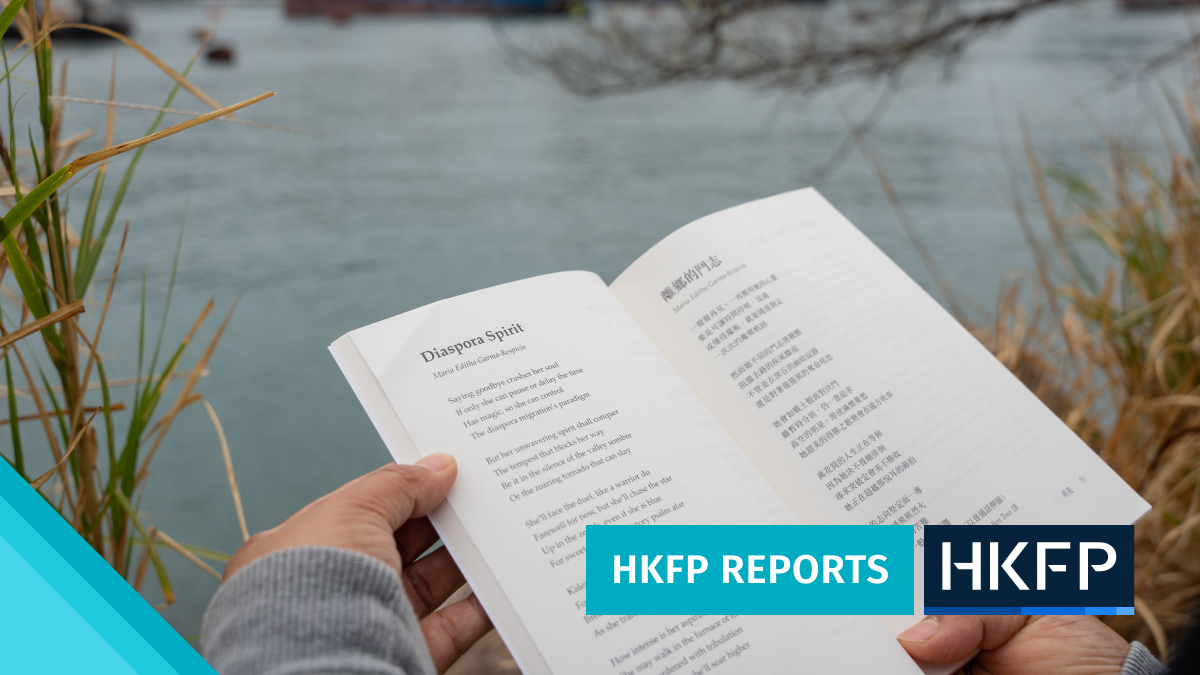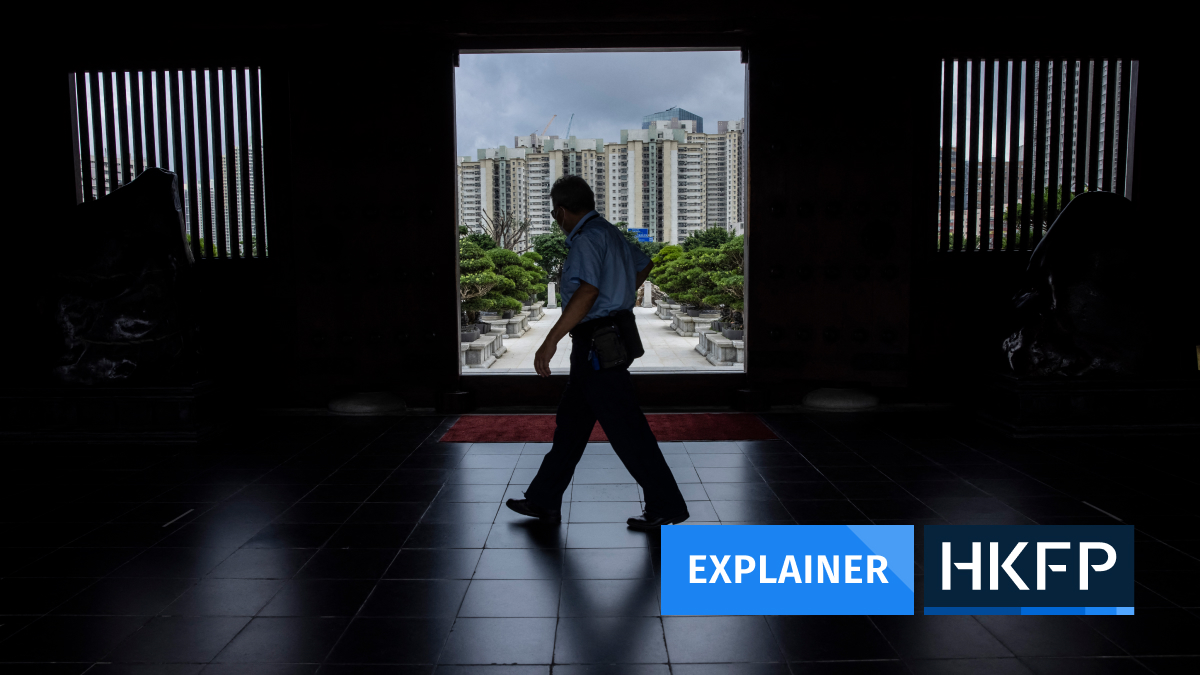Leaning into the microphone on a mahogany desk in the Legislative Council, Lamia Sreya Rahman had exactly three minutes to make her case to the 30-odd lawmakers and government officers before her.
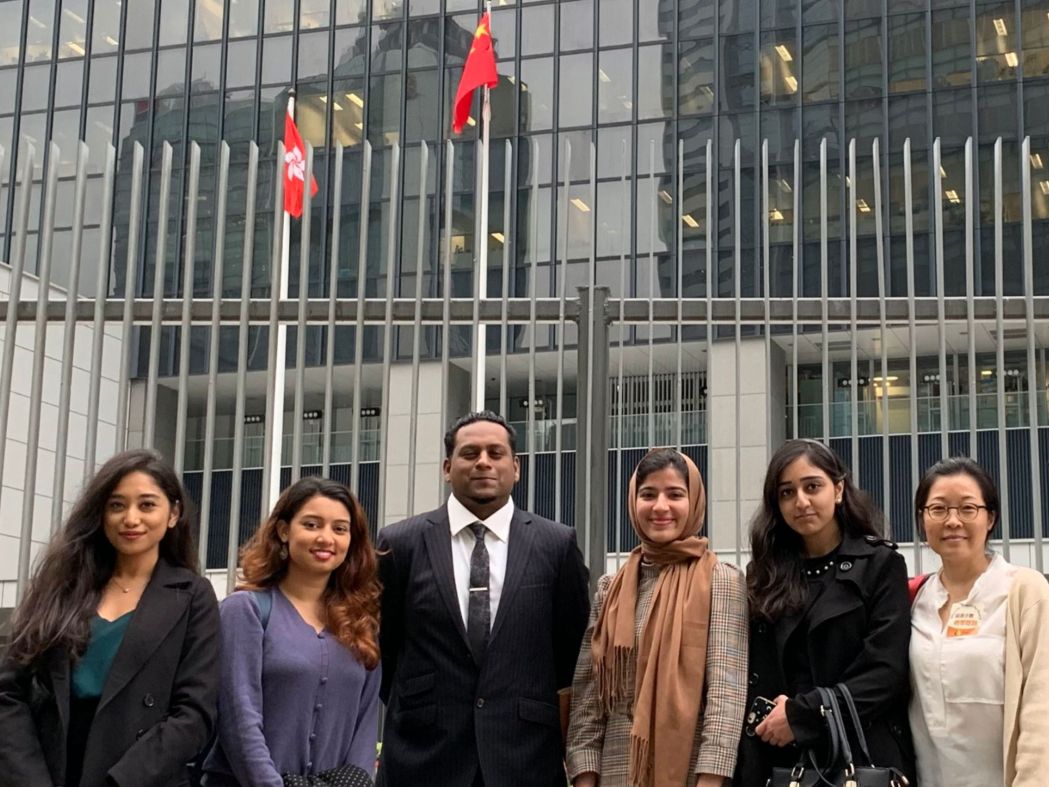
The Hong Kong-Bangladeshi, then a second-year university student, read out her carefully timed speech condemning the city’s police for allegedly racially profiling South Asians and Africans. Rahman was among the dozens of activists, academics and others at a public hearing that afternoon in January 2018, delivering statements to a subcommittee discussing issues related to Hong Kong’s ethnic minorities.
“When I was up there, I felt my audience was not just the people in the room,” Rahman, now 25, told HKFP. “I was speaking to the whole of Hong Kong.”
Such scenes, however, are rare at the Legislative Council today.
January marks one year since the current lawmakers were sworn in following Beijing-imposed electoral changes, which ensured that only those deemed “patriots” could run. Of the 90 new lawmakers, only one identifies as not being from the pro-establishment camp.

From ethnic minorities to asylum seekers to domestic workers, the city’s marginalised groups say that without pro-democracy lawmakers, they are shut out of legislative procedures and unable to hold the government accountable.
Traditionally, opposition lawmakers were more involved than their pro-Beijing colleagues in rights advocacy, meeting these groups and fighting for opportunities – like the public hearing that Rahman took part in – so their voices could be heard. Most of those lawmakers have either been detained under the national security law, have quit politics, or have left Hong Kong.
Public hearings, once a regular and vital function of the Legislative Council, have only been held once since Covid-19 began, records show.
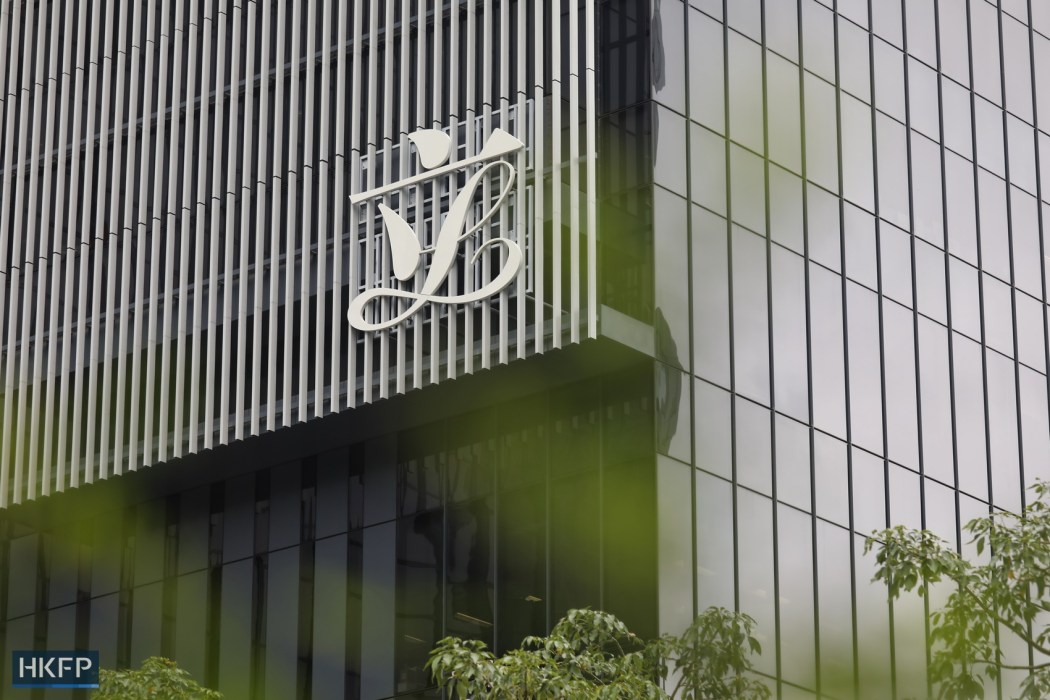
Activists told HKFP that they are unfamiliar with the new lawmakers, who seemed to be less knowledgeable about the issues their communities faced.
HKFP reached out to around half a dozen lawmakers, among them veteran legislators and those sworn in last year. Most did not respond to requests for comment.
Nixie Lam, a legislator from the pro-Beijing Democratic Alliance for the Betterment and Progress of Hong Kong party, said she disagreed that minority groups were unrepresented by lawmakers. A newcomer to the Legislative Council, Lam told HKFP she helped organised a Covid-19 vaccination drive at Kowloon Mosque last year and also joined ethnic minority students on a tour of the Palace Museum earlier this month.

Lam admitted that issues relating to marginalised communities, including ethnic minorities, were being discussed less in the Legislative Council compared to before. But that was because of other urgent matters on hand, not for a lack of concern.
“The focus in the legislature has heavily shifted to Covid-19 and how to support the industries that have been hit hard,” she said. “Everything else is less of a priority.”
Another lawmaker, Doreen Kong, told HKFP that her door was open to anyone – including minority communities – should they need help. She said the onus should not be on lawmakers to actively contact communities to “find their problems.”
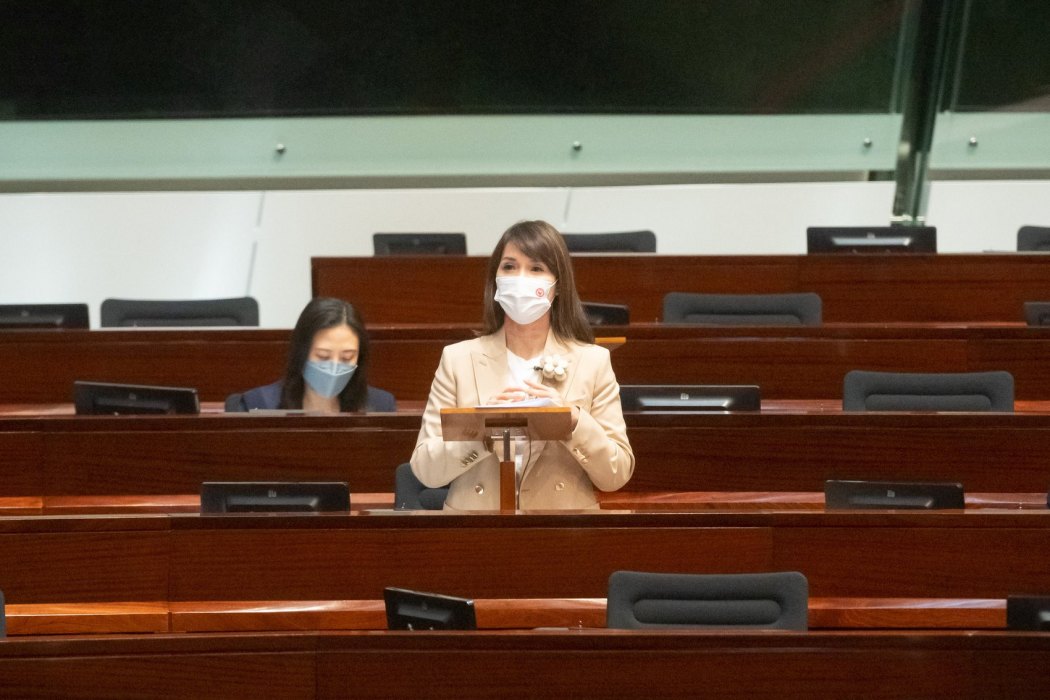
“I welcome them to reach me,” she said, adding that her email address is on her Facebook page. The lawmaker writes her social media posts mostly in Chinese as it takes additional resources for English translations, she said, but that she intended to post in English more going forward.
‘One-sided’ decision making
For the city’s 14,900 asylum seekers, the lack of checks and balances in the Legislative Council has played out in the introduction of two key pieces of legislation – an amended immigration law in April 2021, and a removal policy last December.
Under the new rules, the city can arm immigration officers at a detention centre that holds asylum seekers, and deport them from Hong Kong while awaiting court appeals.
Like many topics, the issue of the city’s asylum seekers was divided according to political allegiance, with many pro-establishment lawmakers labelling them as “fake refugees” threatening public safety.

Dennis Kwok, a barrister who served in the Legislative Council for eight years, was among the pro-democracy lawmakers working with NGOs supporting asylum seekers.
When it was his turn to speak during a public hearing in 2018, Kwok gave the floor to an asylum seeker.
“The public hearings were a very important show of civil society,” he told HKFP. “Now, I don’t think they have a voice anymore.”
Human rights lawyer Mark Daly, who criticised the lack of public consultation ahead of the new immigration law and removal rule, said an absence of scrutiny would only result in the passing of policies that would make the lives of asylum seekers in Hong Kong more difficult.
“Those legislators who were informed about refugee issues unfortunately are no longer in the Legislative Council,” Daly said.
Discussions held in the Legislative Council before the amendments were passed were “superficial” at best, Daly said.
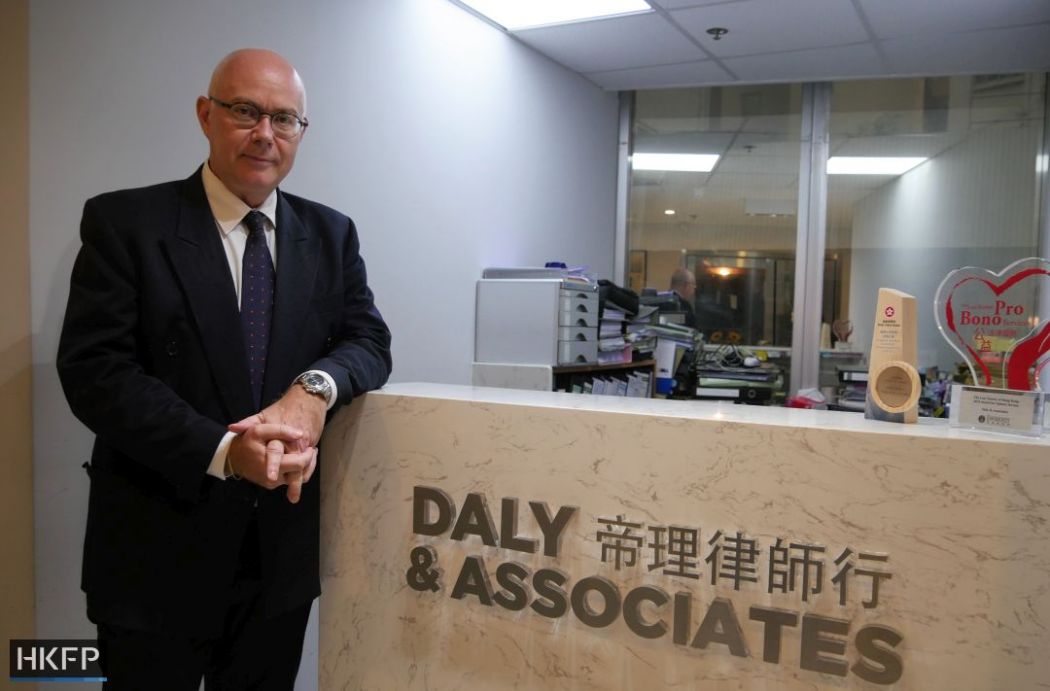
During a December meeting, lawmakers welcomed the removal policy and said asylum seekers were “exploiting” Hong Kong’s legal system to prolong their stay.
“We hope that obviously xenophobia and racism are not part of patriotism, but we’ll have to see,” Daly added.
Employees vs employers
Hong Kong’s domestic workers, too, said the space for impacting change had shrunk under an opposition-free Legislative Council.
A migrant worker activist, who asked to remain anonymous, recalled how pro-democracy lawmakers spoke up about issues related to domestic workers’ rights, such as calling for increases to their minimum monthly wage and a review of a rule that legally requires domestic workers to live in their employers’ homes.
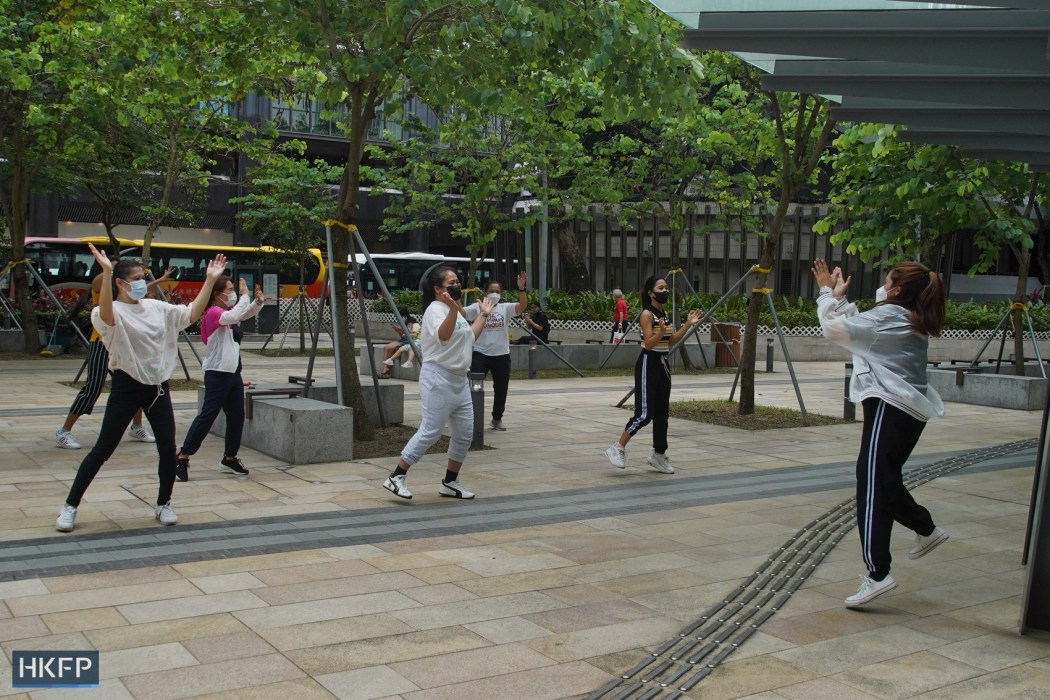
“We had a lot of collaboration with Long Hair [Leung Kwok-hung], Fernando Cheung and Lee Cheuk-yan,” she told HKFP. The three ex-lawmakers, she said, joined activists’ calls for greater protections for domestic workers after the employer abuse case of Indonesian Erwiana Sulistyaningsih.
On the other hand, pro-establishment lawmakers tended to side with employers. When the new legislators took office last year, one of the first motions passed came from lawmaker Judy Chan, who urged the government to crack down on domestic workers “job hopping,” or terminating contracts early and leaving their employers in the lurch.
Some pro-establishment lawmakers have also made offhand remarks about domestic workers. In 2018, lawmaker Eunice Yung was accused of racism after saying they caused hygiene problems when gathering on their rest day.
“Whatever sentiment and prejudice that these lawmakers are expressing against domestic workers [now], practically no one will counter that,” the activist said.

Current lawmaker Kong said she intended to raise issues related to domestic workers in the Legislative Council, including that they were forced to rest on sidewalks and bridges on their holidays as they had nowhere to go.
During Hong Kong’s fifth wave of Covid-19 in early 2022, however, Kong wrote on Facebook that not mandating vaccines for domestic workers was “a big oversight,” adding that they were being allowed to “gather in the thousands to sing and dance on the street on Sunday.”
Still, Kong told HKFP that she was willing to speak with NGOs and activists to better understand their situation.
“Communication is a two-way street,” she said.
‘I’m doing my job’
Lam, the DAB lawmaker, said minority communities were not being left out of the conversation. She questioned whether pro-democracy lawmakers had truly amplified their voices in the past.

“I don’t know how deep [the ethnic minority community] were represented before… but I’m doing my job on that part,” Lam said, adding that she had raised ethnic minority issues in the Legislative Council before, including calling on the government to enhance employment opportunities and Chinese learning support for non-Chinese students.
Lam admitted that her pool of contacts was limited – while she knew religious leaders at the Kowloon Mosque, where she had helped organise the Covid-19 vaccine drive, she said she had not spoken with any NGOs or activists.
This gap, minority communities fear, meant they had lost access to a crucial battleground for advocacy.
“[The opposition lawmakers] helped us air our grievances and raise our demands,” the migrant worker activist said. “Whether or not the government listens and reforms policies is not the thing. But at least we had this space to be heard.”
Support HKFP | Policies & Ethics | Error/typo? | Contact Us | Newsletter | Transparency & Annual Report | Apps
Help safeguard press freedom & keep HKFP free for all readers by supporting our team

Original reporting on HKFP is backed by our monthly contributors.
Almost 1,000 HKFP Patrons made this coverage possible. Each contributes an average of HK$200/month to support our award-winning original reporting, keeping the city’s only independent English-language outlet free-to-access for all. Three reasons to join us:
- 🔎 Transparent & efficient: As a non-profit, we are externally audited each year, publishing our income/outgoings annually, as the city’s most transparent news outlet.
- 🔒 Accurate & accountable: Our reporting is governed by a strict Ethics Code. We are 100% independent, and not answerable to any tycoon, mainland owners or shareholders. Check out our latest Annual Report, and help support press freedom.
- 💰 It’s fast, secure & easy: We accept most payment methods – cancel anytime, and receive a free tote bag and pen if you contribute HK$150/month or more.
MORE Original Reporting
HKFP has an impartial stance, transparent funding, and balanced coverage guided by an Ethics Code and Corrections Policy.
Support press freedom & help us surpass 1,000 monthly Patrons: 100% independent, governed by an ethics code & not-for-profit.




